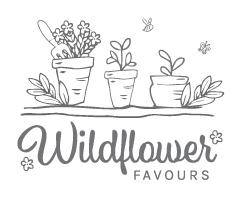One of the charities supported by Wildflower Favours is Buglife, a charity which is, in its own words “Saving the small things that run the planet”. Climate change is of major concern and is highlighted even more at this time with the COP26 conference.


Buglife have created a very informative blog summarising the effect on invertebrates of climate change. Please do give it a read.
“By taking better care of habitats, and by restoring wild places, we can rebalance our atmosphere. We must protect remaining habitats and restore them at scale. Many habitats of great wildlife value have been shown to very effectively sequester carbon – habitats like peat bogs, wildflower-rich grasslands, woodland, and seagrass beds. Not only do these habitats soak up atmospheric carbon, they help to mitigate against the impacts of climate change, like aiding the movement of species, or better managing flood waters.” (Buglife)
Most of the world’s insect species have relatively short life cycles and good powers of mobility so that they are likely to be one of the first groups to show the impact of a changing climate:

“Cold-loving species will retreat northwards and uphill, while warm-loving species will increase their range and species normally found further south in Europe may become established in the UK. Temperature plays a vital role in the breeding success of cold-blooded organisms and therefore the population size and viability of many invertebrate species. It is probable that small changes in temperature will be enough to jeopardise the survival of some invertebrate populations. This effect will most likely be seen in cold-adapted montane species whose very survival may be at stake; however, it is also evident in other habitats.” (Buglife)
To further emphasise the dire consquences of climate change on insect populations, Buglife have a new campaign “No Insectinction”. Please pledge your support to this important campaign.

You can help our insects with 7 changes to your lifestyle:
Avoid peat products – peatland takes thousands of years to form and is one of the planet’s major stores of carbon. Choose peat alternatives from your garden centre. Ask them if they will be ditching peat and stocking more peat-free compost alternatives. Use your shopping power to make a change.
Stop slaughtering the insect wildlife in your garden with sprays – insects are part of your garden’s eco-system, let them live! By poisoning your garden with pesticides and insecticides you are also killing beneficial insects, and the mammals/birds/bats that eat them.
Don’t tidy! – leave your garden a bit messy or, if that is not an option, just set aside an area that can be left untidy. Let the grass grow, plant wildflowers, leave natural garden debris to provide habitats for insects, reptiles and small mammals.
By local/grow your own – wherever possible, buy local produce that is in season, thereby avoiding airmiles from out of season food being flown in to the country. Mass produced vegetables and fruit will have been sprayed too. If you can, grow your own organic veg and buy organic, maybe from a local veg box scheme. Every little helps to reduce your carbon footprint and, by extension, helps Nature.
Buy only UK-grown plants – many plants are shipped in from abroad and sometimes with them come species not native to our country. This can play havoc with our native wildlife. Again, maybe you can buy from a local grower.
Grow wildflowers – this is one of the best things you can do for our native wildlife. Our native species require native plants. Some species, such as the rare Duke of Burgundy butterfly, will only feed on Wild primroses and Cowslip – if there are none of those, there is no Duke of Burgundy butterfly. Not only that, by growing native wildflowers (rather than sterile bedding plants or double-flowered plants, for example) you are helping our bee populations.
Install a bug hotel – a bug hotel provides great habitat for insects. You can make your own with tubes, leaves, bamboo, twigs etc or buy a purpose-built one. It can be as small or as grand as you like and will provide vital habitat for all sorts of creatures.


You can help Buglife’s work by buying our Buglife seed packet charity wedding favours. A donation of 20p is made to Buglife from every packet sold.



